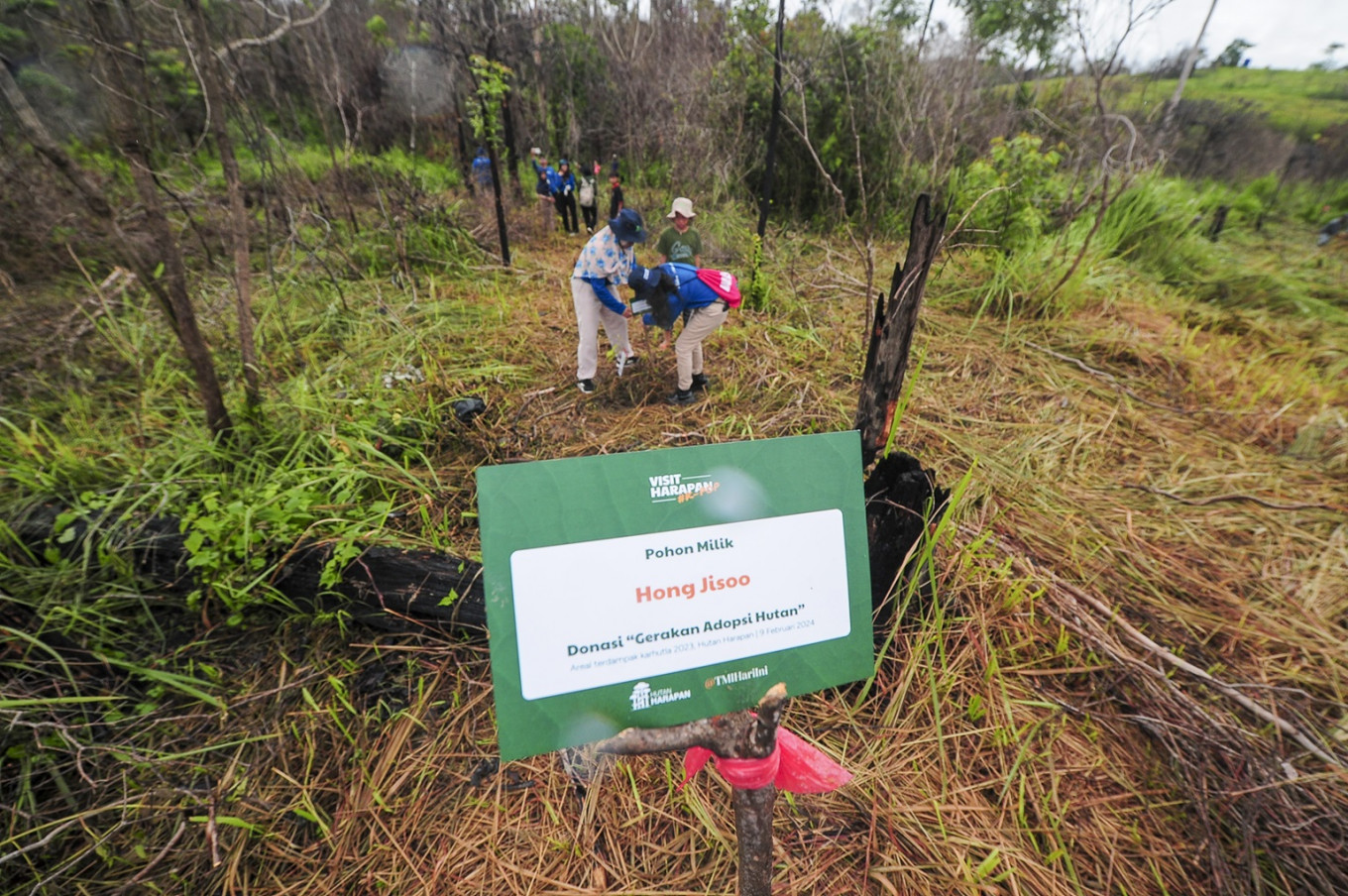Popular Reads
Top Results
Can't find what you're looking for?
View all search resultsPopular Reads
Top Results
Can't find what you're looking for?
View all search resultsIndonesia takes global lead with developing world's climate narrative
Indonesia has taken the global lead in presenting the climate narrative of developing nations in its white paper on just transition, which also serves as a reference framework for its peer countries in navigating their way toward equitable development and prosperity.
Change text size
Gift Premium Articles
to Anyone
T
here are always two sides to a story. But when it comes to the climate crisis, the world needs to pay closer attention to the provided by developing nations.
Indeed, the countries of the developing world, including Indonesia, have a unique story to share and obligations to their people, millions of who live below the poverty line. Our climate actions must work to support these people, not further disadvantage them.
This week, Indonesia put this narrative at the forefront by presenting its approach to a just and clean energy transition on the sidelines of the 79th United Nations General Assembly, which ran from Sept. 20 to 28 at the UN headquarters in New York.
The Indonesian Just Transition White Paper showcases the unique approach Indonesia will take to the just transition, and gives developing countries a reference point for global climate action.
By demonstrating ownership of the just transition, the white paper also provides a critical piece of climate advocacy for developing nations as they disproportionately bear the brunt of the worsening climate crisis. Their vulnerability to climate impacts, coupled with their growing appetite for clean energy, put them in a position to lead with innovative, context-specific solutions that can shape a more equitable and effective global response.
Indonesia stands as a powerful example of how a developing nation can lead sustainable development, from ambitious reforestation efforts to substantial investments in renewable energy. These initiatives not only protect the environment but also empower local communities and most importantly, uphold the right to grow and prosper.
The Indonesian Just Energy White Paper will therefore guide future administrations and reinforce the role of developing countries in climate leadership.
Produced by the implementation team of the National Energy Transition Task Force (Satgas TEN), the socioeconomic and environmental working group and other stakeholders, including development partners, the white paper aims to define and establish a definition, framework and government approach for a just transition in Indonesia.
With its overarching theme, this document can be a reference for future policies, planning and implementation of Indonesia’ just transition in the energy sector: promoting environmental sustainability and social equality, such as better jobs, alongside targeted social protection.
According to the Institute for Essential Services Reform (IESR), a local think tank, job losses in Indonesia could reach between 25,000 and 252,000 by 2050 due to the phasing out of coal. The economic impact is more severe in coal-producing regions, such as Muara Enim in South Sumatra and Paser in East Kalimantan, which could lose over Rp 96.9 trillion (US$6.4 billion) in revenue without intervention.
In fact, more than 50 percent of these regions’ gross regional domestic product is tied to the coal mining industry. This poses challenges for labor reallocation, given the possible lack of local employment alternatives.
Indonesia’s coal-producing regions will face significant social and economic disruption, just as other nations have experienced in the past following a structural decline in coal demand. The white paper therefore calls on all stakeholders to ensure that communities are supported and empowered throughout the transition process.
Meanwhile, it seeks to ensure that Indonesians can enjoy maximum benefits from the new job opportunities the energy transition can bring as new, clean energy generation and transmission networks are built and maintained and more communities are able to enjoy reliable power, day and night.
Another highlight of the white paper is its focus on women and other disadvantaged groups. A UN Women report suggests that by 2050, climate change might push 158 million more women and girls into extreme poverty and 232 million to experience food insecurity. The UN Environment Programme estimates that women and girls, who are more prone to poverty, violence or unintended pregnancies, make up 80 percent of the people displaced by climate change.
As women have historically not had proportional access to the country's socioeconomic benefits, it is crucial to aim for gender equality in the just transition, from workforce composition to compensation recipients. This includes ensuring that women and disadvantaged groups are fully represented in the decision-making process related to the energy transition.
As the world moves toward a greener future, it is equally important for developing countries like Indonesia to recognize the economic risks and opportunities that the climate crisis presents, especially as Indonesia aims to become the world’s fourth-largest economy in 2050, just one rank below the United States.
According to the National Development Planning Agency (Bappenas) however, the country could experience potential GDP loss of 3.54 percent in 2050 if it does not transform its energy system, making the just and clean energy transition a more urgent task.
But balancing the urgency for a just and clean energy transition with robust economic growth to protect communities and alleviate poverty is a continuing delicate task.
The Indonesian Just Energy White Paper is a declaration of intent, reiterating Indonesia’s climate commitments and aiming to ensure shared prosperity, where balance can be achieved.
It is a set of guidelines that can help developing nations redefine the global narrative on climate action, ensuring that this action reflects the needs of all, especially the most vulnerable.
It is the other side of the story, which history will reflect as a key part of global climate justice.
***
The writer is deputy of environment and forestry management coordination at the Office of the Coordinating Maritime Affairs and Investment Minister.











